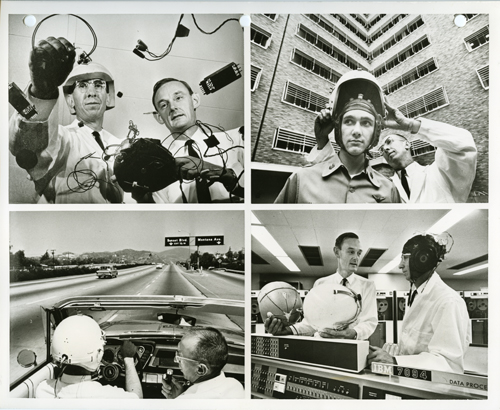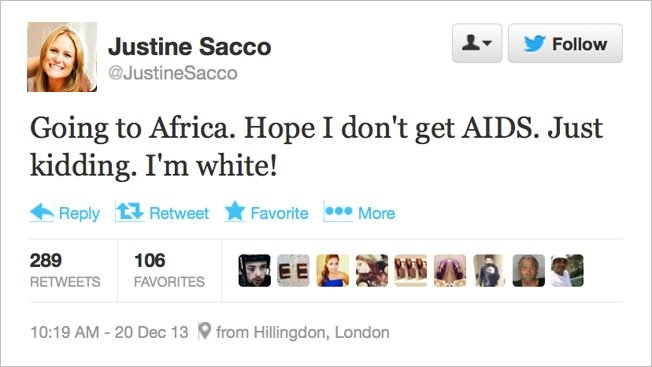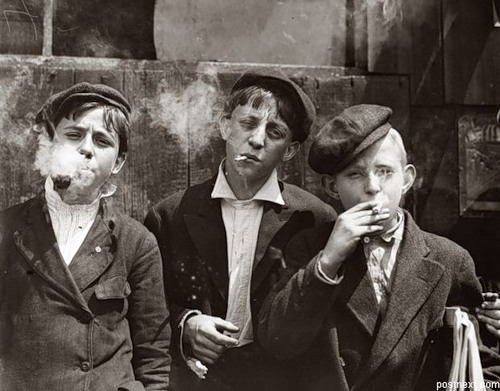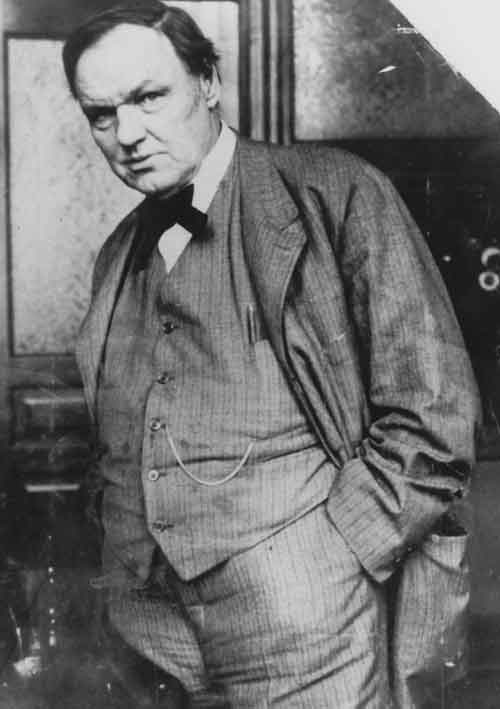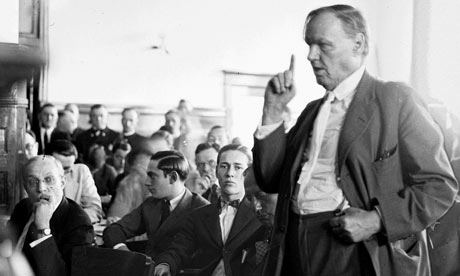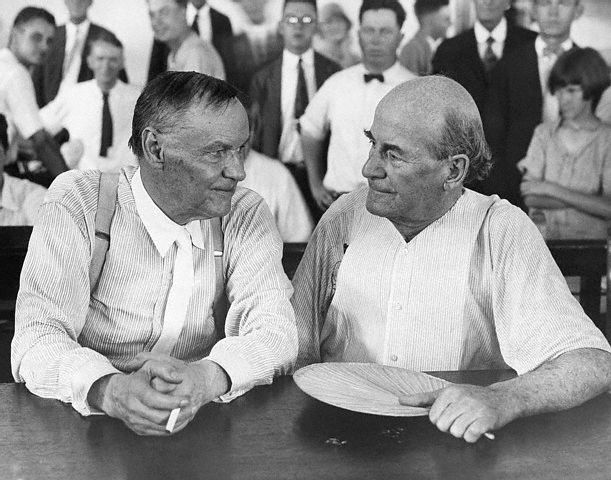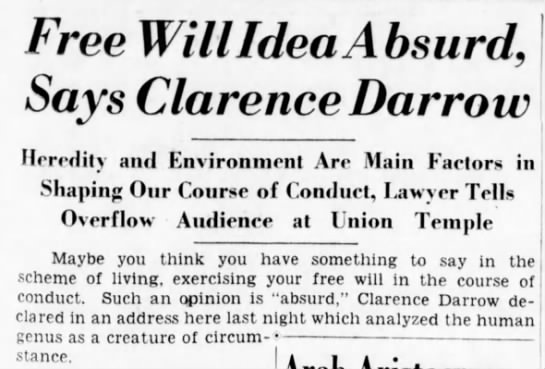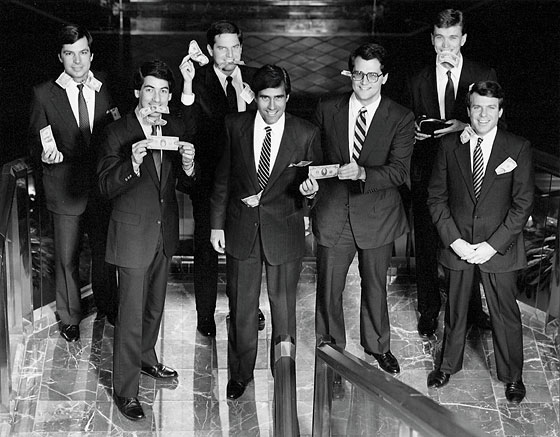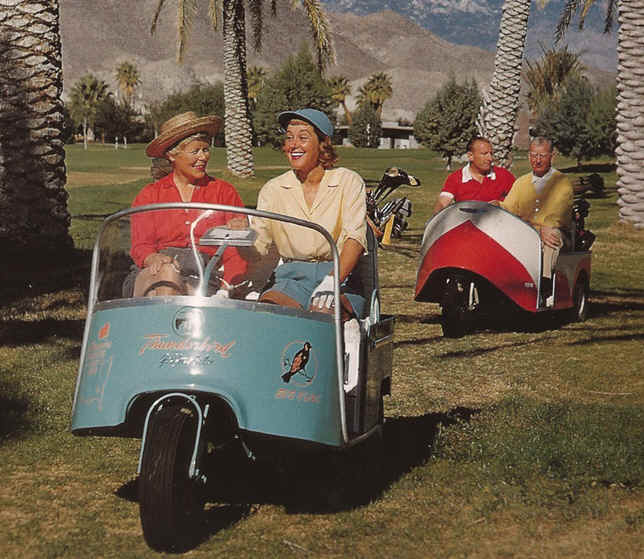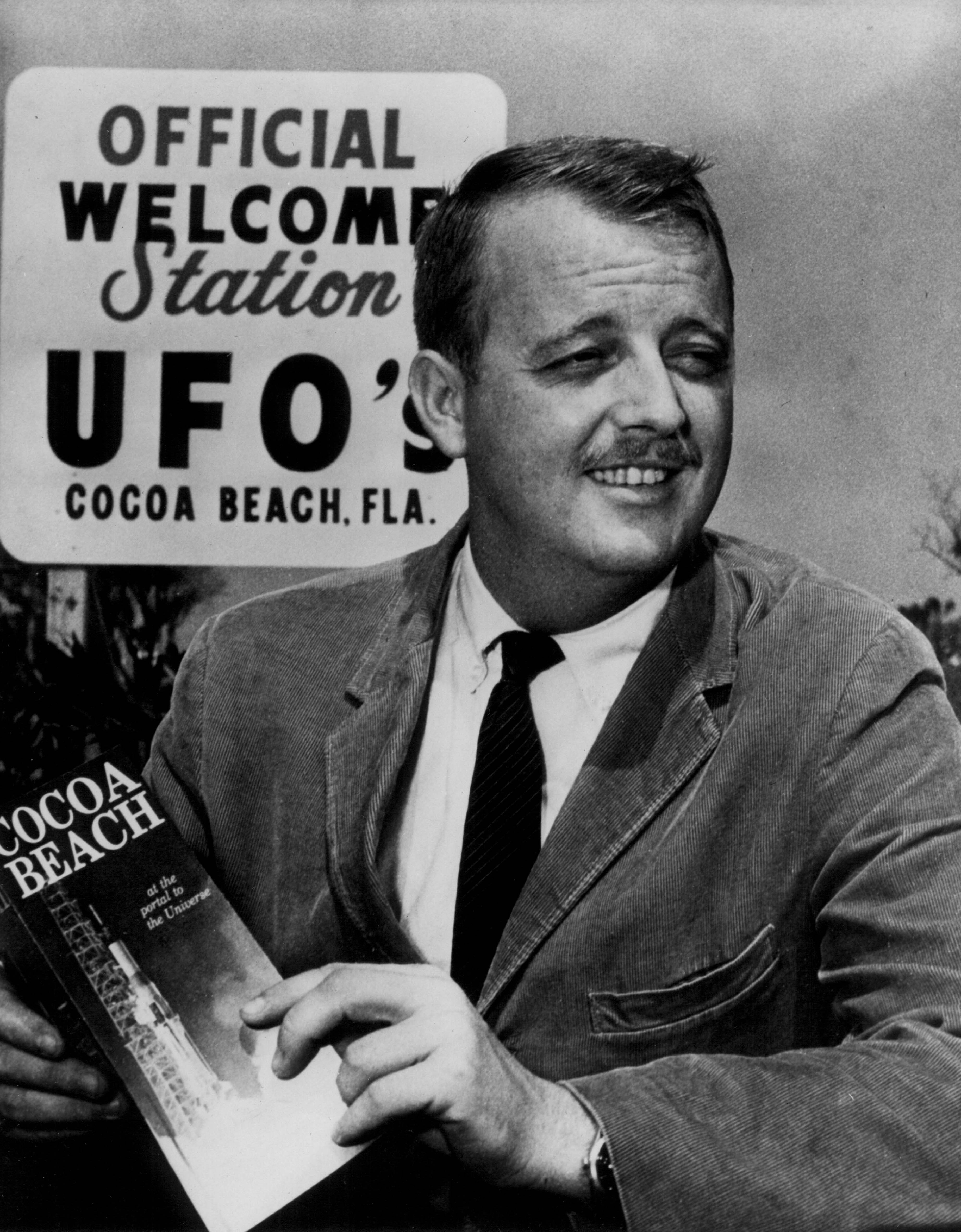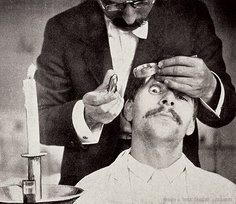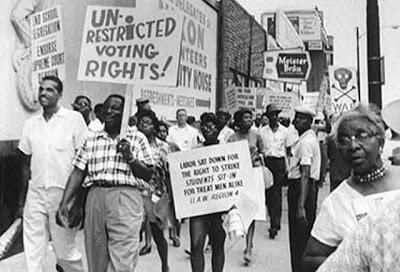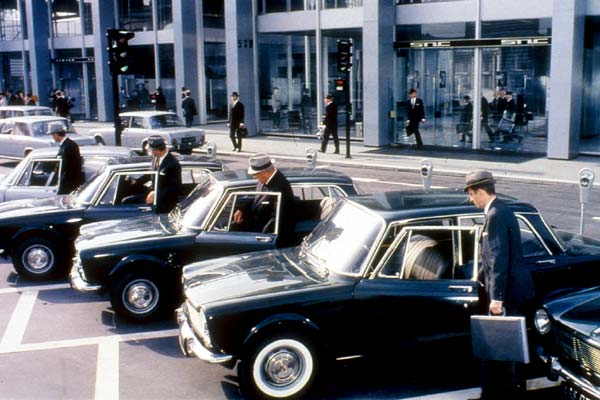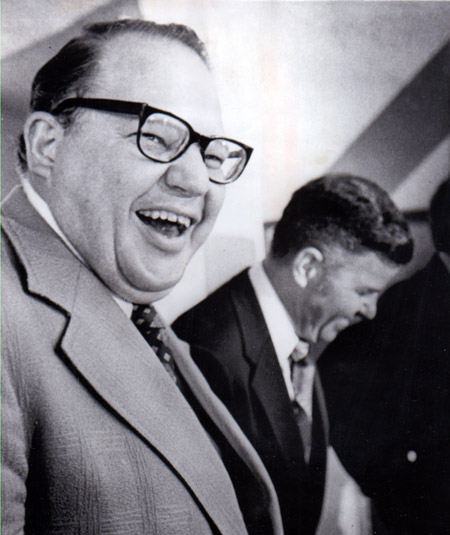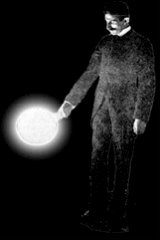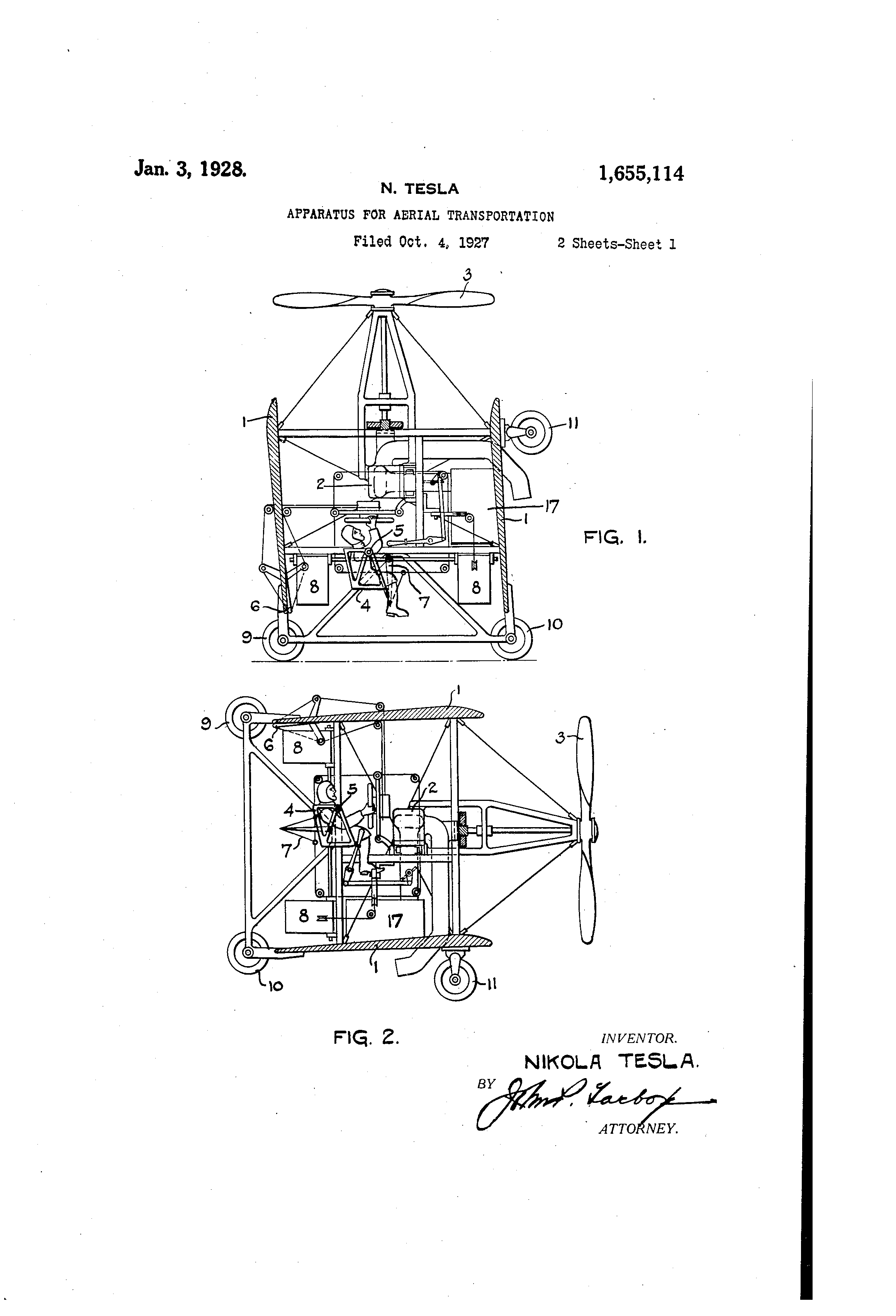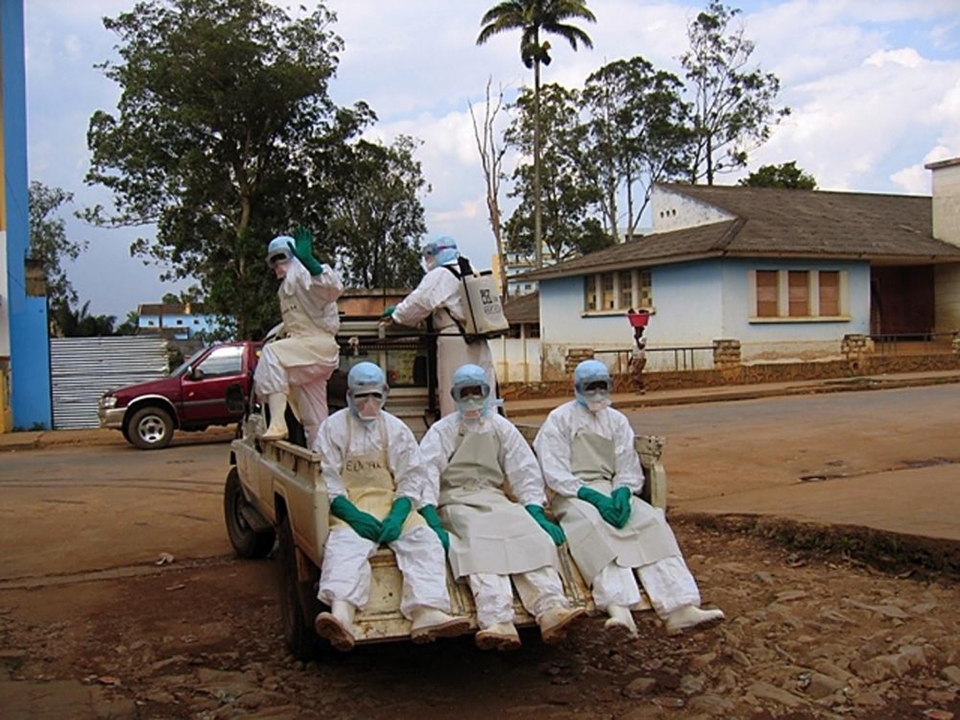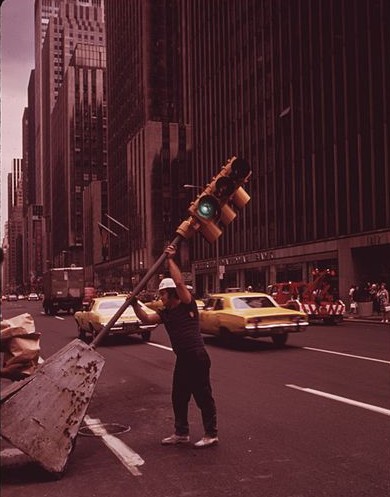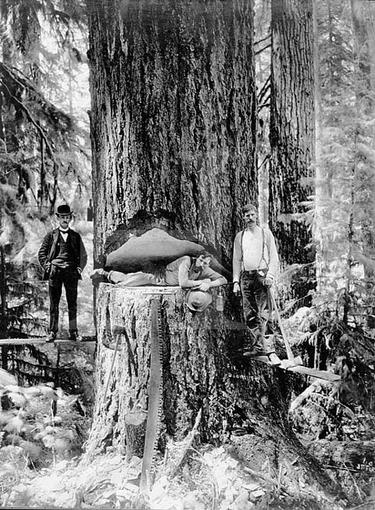Appropriately trippy 1979 ABC News report about the U.S. government’s attempts across three decades to not just know its citizens’ thoughts but to actually control them. There was a Truth Drug Committee, CIA experimentation with LSD and mushrooms on unwitting Americans and Manchurian Candidate-esque goals. Ultimately it aided the establishment of the 1960s counterculture.
You are currently browsing the archive for the Urban Studies category.
Tags: Paul Altmeyer
Two passages, one from five years ago and one from today, about how the anarchy of the Internet has released the devil inside us all.
_________________________
In 2009, Jim Windolf of Vanity Fair wrote a good article about Internet trolls even before the term existed, but even though biting blogs have been supplanted by social media, his prediction about the decline of anonymous online hating did not come true–at least not yet–in fact it’s taken on new and even more hurtful forms. An excerpt from his piece:
“Online rudeness probably won’t last forever. I think it’s just a fashion. Things change. Stuff that seems cool gets stale. It feels like it won’t, but it does. So it seems reasonable to guess that online nastiness will fade—not through any enforcement, but just because it will go out of style. There will always be flame wars. There will always be online lunkheads and goons. But in a few years maybe you won’t really want to be the one calling someone else a douche-tard in a comments section.”
_________________________
From Alex Hern’s Guardian article, Tim Berners-Lee on what he hath wrought, complete unintentionally:
“Tim Berners-Lee has expressed sadness that the web has mirrored the dark side of humanity, as well as enabling its ‘wonderful side’ to flourish.
The developer, who created the web in 1990 while working for the particle collider project Cern in Switzerland, said that the web is a reflection of human nature elsewhere, but that he had hoped ‘that the web would provide tools and fora and new ways of communicating that would break down national barriers and allow us to just get to a better global understanding.
‘Well, maybe it’ll happen in the future … Maybe we will be able to build web-based tools that help us keep people on the path of collaborating rather than fighting.’
Speaking to BBC News, Berners-Lee said that it was ‘staggering’ that people ‘who clearly must have been brought up like anybody else will suddenly become very polarised in their opinions, will suddenly become very hateful rather than very loving.'”
Tags: Alex Hern, Jim Windolf, Tim Berners-Lee
From the July 11, 1901 Brooklyn Daily Eagle:
“James Driscoll, a boy 14 years old, who lives at 84 Lynch Street, when he stays home, eats and chews cigarettes. At least that is what his mother has to say about him. And according to her, he makes a regular diet of them, for he has the tobacco habit in an advanced degree.”
Tags: James Driscoll
An Economist article responds to Lee Gomes’ Slate piece about the difficulty of making driverless vehicles truly autonomous, suggesting that the real impediment to such machines might be the large stock of cheap labor created by the disruptive qualities of other technologies. An excerpt:
“Writing at Slate, for instance, Lee Gomes frets that driverless vehicles struggle in unfamiliar territory when they lack good maps, can make errors when sun blinds their cameras, and are occasionally caught out by the unexpected appearance of new traffic signals. Human drivers, of course, share these weaknesses, and others: like difficulty operating in adverse weather conditions. The big difference between driverless vehicles and humans, in these cases, is that the computer can be programmed to behave cautiously when stumped, while humans often plough ahead heedlessly. When critiquing driverless cars it is often useful to recall that human drivers kill and maim millions of people each year.
Ironically, the biggest obstacle to widespread use of driverless vehicles, over the next decade or two at any rate, may be the effects of rapid technological progress in other parts of the economy. As a recent special report explains, technological change over the last generation has wiped out many middle-skill jobs, pushing millions of workers into competition for low-wage work. That glut has contributed to stagnant wages for most workers, and low pay has in turn reduced the incentive to firms to deploy labour-saving technology. Why automate, when there is an enormous stock of cheap labour available? At the same time firms like Uber are making the use of hired cars cheaper and more convenient, reducing the attraction to many households of owning and driving their own personal vehicles.
The combination of Uber and cheap labour could pose a formidable threat to the driverless car. The cost of the sensors and processors needed to pilot an autonomous vehicle is falling and is likely to fall much more as production ramps up. Yet the technology is still pricey, especially compared with a human, which, after all, is a rather efficient package of sensory and information-processing equipment. At low wages, a smartphone-enabled human driver is formidable competition for a driverless vehicle.
It would be a remarkable irony if the driverless car—in many ways the symbol of the technological revolution that is now reshaping modern economies—fails to materialise as an economic reality thanks to the disemploying power of other technologies.”
Tags: Lee Gomes
Wonder-Chicken (Green Township)
Tipsy is a 10 week old Bantam hen that needs to be adopted as a pet. Tipsy suffered and has survived an infection of Mareks disease. To protect the rest of the flock Tipsy cannot return to the flock (she’s quarantined). If you want a bird as a pet she will be great.
Famed attorney Clarence Darrow was an extremist when it came to criminality, believing in circumstance but not culpability. He saw criminals the way the writer of a naturalist novel views characters, as prisoners of nature and nurture, incapable of circumventing either. Based on the remarks he made as reported in an article in the April 4, 1931 Brooklyn Daily Eagle, Darrow would have treated all misdeeds as maladies, the perpetrators receiving treatment in hospitals rather than stretches in prison.
Tags: Clarence Darrow
In his TED Talk, “New Thoughts on Capital in the Twenty-First Century,” Thomas Piketty has good and bad news. The good: Wealth inequality, although severe now, is not as deep as a century ago. The bad: The shrunken wealth gap post-World War II was an outlier, not a norm that will reestablish itself for any long period under the present system.
Tags: Thomas Piketty
Via Google driverless-car consultant Brad Templeton, a report about Singapore’s limited test run of autonomous public transport:
“In late August, I visited Singapore to give an address at a special conference announcing a government sponsored collaboration involving their Ministry of Transport, the Land Transport Authority and A-STAR, the government funded national R&D centre. I got a chance to meet the minister and sit down with officials and talk about their plans, and 6 months earlier I got the chance to visit A-Star and also the car project at the National University of Singapore. At the conference, there were demos of vehicles, including one from Singapore Technologies, which primarily does military contracting.
Things are moving fast there, and this week, the NUS team announced they will be doing a live public demo of their autonomous golf carts and they have made much progress. They will be running the carts over a course with 10 stops in the Singapore Chinese and Japanese Gardens. The public will be able to book rides online, and then come and summon and direct the vehicles with their phones. The vehicles will have a touch tablet where the steering wheel will go. Rides will be free. Earlier, they demonstrated not just detecting pedestrians but driving around them (if they stay still) but I don’t know if this project includes that.
This is not the first such public demo – the CityMobil2 demonstration in Sardinia ran in August, on a stretch of beachfront road blocked to cars but open to bicycles, service vehicles and pedestrians. This project slowed itself to unacceptably slow speeds and offered a linear route.
The Singapore project will also mix with pedestrians, but the area is closed to cars and bicycles. There will be two safety officers on bicycles riding behind the golf carts, able to shut them down if any problem presents, and speed will also be limited.”
Tags: Brad Templeton
Uber could use all the good publicity it can get right now, its business plan a threat to licensed drivers, its surge pricing unpopular and its own operators prone to screaming headlines for any misdeeds. Even Libertarian Peter Thiel thinks the company may be flouting regulations too much, careering onto a self-destructive Napster path. Perhaps on-demand flu shots, which Uber tried for a day in several U.S. cities, can help. From Dan Diamond at Forbes:
“Uber’s latest one-day promotion kicked off on Thursday: UberHEALTH, the company’s first concerted effort to move into health care delivery.
The company announced that Uber users in Boston, New York City, or Washington, D.C., could order a free flu shot between the hours of 10 a.m. and 3 p.m.
And Flüber’s terms sounded appealing.
‘We’re leveraging the reliability and efficiency of the Uber platform and launching a one-day pilot program — UberHEALTH — in select cities today,’ an Uber blog post reads. ‘Together with our partner Vaccine Finder we will bring flu prevention packs and shots directly to you – at the single touch of a button.’
To be clear, Uber drivers weren’t administering the shots; they’d transport registered nurses to a user’s location, and the nurses could give up to 10 flu shots.”
Tags: Dan Diamond
A fun thing to speculate on which will never happen is Florida, that strange entity, splitting into two distinct states à la the Dakotas, with the politically disparate Texas-ish north and New York-esque South going their separate ways, at least metaphorically. From Allie Conti in Vice:
“Florida is like a parfait. The bottom layer is made up of Miami, gays, and rich people; the middle is basically Disney World, stucco palaces, and suburban sprawl; and the top is more or less South Georgia run-off. In the mind of the average citizen, the state is essentially three different places with distinct cultures—or lack thereof. But what would happen if a man with a vision decided he wanted to make the idea of multiple Floridas a reality?
On October 7, the city of South Miami’s vice mayor proposed just that. His resolution, which passed 3-2, suggests that the new state of South Florida would start from Orlando and go all the way to the Keys. And although the city of North Lauderdale passed a similar resolution in 2008, that version was largely symbolic. This one, according to its author, Walter Harris, is deadly serious. But Harris’s determination doesn’t make the split any more plausible, and the likelihood of South Florida becoming the 51st state is slim, to say the least. As the Sun Sentinel notes, ‘In order for secession to be enacted… the measure would require electorate approval from the entire state and Congressional approval.’
Nevertheless, one can’t blame Harris—or anyone, for that matter—for at least trying to secede from Florida. And his issues with his northern neighbors are valid. One of the main themes in the resolution is that, despite generating 69% of the state’s revenue, southern Florida doesn’t feel the government in Tallahassee is doing enough to address the unique problems that climate change pose to them. ‘South Florida’s situation is very precarious,’ the resolution reads, ‘and in need of immediate attention. Many of the issues facing south Florida are not political, but are now significant safety issues.’ One of those issues, of course, is the sea-level change that some say will soon cause places like Miami to sink into the ocean.”
Tags: Allie Conti, Walter Harris
From the August 24, 1912 Brooklyn Daily Eagle:
“Denver, Col. — If the strange request of William J. Abrams, a blind man of Denver, is granted, he hopes to see through the eyes of Lewis J. Weichter, condemned to be hanged at Canon City next week for murder. Abrams asks that after the execution the eyes of the condemned man be grafted upon his own.
If the request is granted, surgeons will be in the death chamber when the trap is sprung. Immediately after Weichter has been officially pronounced dead, his eyes will be removed and placed in a saline solution, after which the surgeons will hurry to a hospital nearby where the corneas from Weichter’s eyes will be grafted into the sightless eyes of Abrams.”
A multi-planet humanity is a hedge against an Earth catastrophe eradicating our species, sure, but there are financial considerations as well to interstellar development. From Tim Fernholz’s new Atlantic article about Elon Musk’s SpaceX:
“With 33 commercial launches on its manifest in the next four years, a plan to launch manned missions by 2017, and subsidies from Texas to build its own spaceport there after several years of leasing government facilities, SpaceX is now a serious competitor in the launch industry. That’s a validation for NASA’s public-private partnership, which was focused on developing a business, not a product.
But the question for Musk and his investors now is whether he can be more than just a better rocket builder. They want to unlock something far more challenging: A space economy where humans can vastly increase their productivity in the vacuum around our tiny world and beyond, even if nobody is quite sure how yet. Nolan of Founders Fund compares this hopeful uncertainty to the founding of the internet. ‘It wasn’t clear exactly what kind of business can come out of exchanging information really rapidly,’ he says.
For example, if it weren’t so pricey, investors could imagine putting up hundreds of new satellites in lower orbits than existing ones, making their communications and imaging far more powerful. Because of the high launch costs, current satellites aren’t upgraded frequently and are stationed relatively far from earth so that they can last longer—the closer a satellite flies to earth, the faster its orbit decays, leading to its eventual demise. As a result, the electronics in them are relatively old technology.
Cheap enough launches could also enable terrestrial flights that hop up over the atmosphere, turning a day-long flight around the world into a matter of hours. Space tourism is often cited as a possible source of revenue, as is commercial research, even asteroid mining, but making any of those sustainable will mean—you guessed it—far lower costs, as NASA has found in its failure to drum up much commercial research at the ISS.
Can the $6 million launch—or even cheaper—replace the $60 million launch?”
Tags: Elon Musk, Tim Fernholz
Understanding today or tomorrow is an almost impossible task, the present being anything but a sitting duck and the future a black swan. Even those who have a better-than-average idea of where things stand and where they’re heading can misread the details, all but neutralizing their knowledge. From “Nothing You Think Matters Today Will Matter the Same Way Tomorrow,” Frank Rich’s New York magazine look at the last 50 years of American history and what it tells us about prognostication:
“It was a time when many in my boomer generation fell in love with the idea that change was something you could believe in—a particularly liberal notion that has taken hold in other generations, too, whether in the age of Roosevelt or Obama. Even as we recognize that the calendar makes for a crude and arbitrary marker, we like to think that history visibly marches on, on a schedule we can codify.
The more I dove back into the weeds of 1964, the more I realized that this is both wishful thinking and an optical illusion. I came away with a new appreciation of how selective our collective memory is, and of just how glacially history moves, despite the can-do optimism of a modern America besotted with the pursuit of instant gratification. Asked at the time of the 1964 World’s Fair to anticipate 2014, Isaac Asimov got some things right (miniaturized computers, online education, flat-screen television, and what we now know as Skype), but many of his utopian predictions were delusional. His wrong calls included not just his interplanetary fantasies but his vision of underground suburbs that would protect mankind from war, rampaging weather, and the tyranny of the automobile. Asimov also thought birth control would find international acceptance. It was no doubt beyond even his imagination that a half-century hence American lawmakers would introduce ‘personhood’ amendments attempting to all but outlaw contraception.
The screenwriter William Goldman famously summed up Hollywood in three words: ‘Nobody knows anything.’ Would that this aphorism were applicable, as he intended, solely to the make-believe of show business. It often seems that nobody knew anything about anything in 1964. Most everyone was certain that the big political developments of the time, epitomized by LBJ’s victories for civil rights and against Goldwater, would be transformational. Many of the same seers saw the year’s cultural upheavals, starting with the Beatles, as ephemera. More often than not, the reverse has turned out to be true. Are we so much smarter in 2014?”
Tags: Frank Rich
In a Slate piece, Lee Gomes wonders whether the Google driverless car will ever be a reality, one impediment being the need for real-time maps able to read constantly shifting infrastructure on a national level. His comparison of the search-giant’s autonomous-vehicle plans to the Apple Newton seems a self-defeating argument, however, since all the elements of that ill-fated invention were realized soon thereafter in other tools. The opening:
“A good technology demonstration so wows you with what the product can do that you might forget to ask about what it can’t. Case in point: Google’s self-driving car. There is a surprisingly long list of the things the car can’t do, like avoid potholes or operate in heavy rain or snow. Yet a consensus has emerged among many technologists, policymakers, and journalists that Google has essentially solved—or is on the verge of solving—all of the major issues involved with robotic driving. The Economist believes that ‘the technology seems likely to be ready before all the questions of regulation and liability have been sorted out.’ The New York Times declared that ‘autonomous vehicles like the one Google is building will be able to pack roads more efficiently’—up to eight times so. Google co-founder Sergey Brin forecast in 2012 that self-driving cars would be ready in five years, and in May, said he still hoped that his original prediction would come true.
But what Google is working on may instead result in the automotive equivalent of the Apple Newton, what one Web commenter called a ‘timid, skittish robot car whose inferior level of intelligence becomes a daily annoyance.’ To be able to handle the everyday stresses and strains of the real driving world, the Google car will require a computer with a level of intelligence that machines won’t have for many years, if ever.”
Tags: Lee Gomes
Nelson Bunker Hunt, who sprang from the right-wing nut H.L. Hunt, lived a life as large as Texas. He was born with a silver spoon his mouth and nearly lost everything trying to corner the silver market. Hunt would have been considered just another eccentric oilman if it wasn’t for the anti-Semitism, his boner for the John Birch Society and other unsavory politics. From his lively New York Times obituary by Robert D. McFadden:
“Bunker Hunt was a jovial 275-pound eccentric who looked a bit like the actor Burl Ives. In the 1960s and ’70s, he was one of the world’s richest men, worth up to $16 billion by some estimates. With his five siblings, heirs of the oil billionaire H. L. Hunt, who sired 15 children by three women and died in 1974, he controlled a staggering family fortune whose value was not publicly reported.
In his heyday, Bunker Hunt owned five million acres of grazing land in Australia, 1,000 thoroughbreds on farms from Ireland to New Zealand, eight million acres of oil fields in Libya, offshore wells in the Philippines and Mexico, and an empire of skyscrapers, cattle ranches, mining interests and other holdings. Home was a French provincial mansion in a Dallas suburb and his 2,000-acre Circle T Ranch 30 miles out of town.
Often likened to Jett Rink, the antihero of Edna Ferber’s Giant, or the scheming J. R. Ewing of the long-running CBS television drama Dallas, he was a nonsmoking teetotaler who cultivated a devil-may-care Texas mystique by inhabiting cheap suits, a battered seven-year-old Cadillac, economy-class airline seats, burger and chili joints, and dusty barnyards in the raucous company of ranch hands.
He was an evangelical Christian close to the Rev. Jerry Falwell and Pat Robertson and supported right-wing politicians and causes, including the John Birch Society. He loathed the federal government, warned of international communist conspiracies, spouted anti-Semitic sentiments, did business with the Saudi royal family and bankrolled expeditions to salvage the Titanic and to find Noah’s Ark.”
Please! Get this haunted doll out of my home!! – $50
I have a handmade doll made in 1988. It is the only one ever made. Since it came into my home I have had nothing but nightmares and hear strange noises more often…it’s really freaking me out!! Its blank stare always glancing at me while I try to fall asleep has left me with sleepless nights. I’m putting her in a box and locking her in my closet until someone wants to take this creepy girl off my hands!! Please help!
By the time he filed his final patent in 1928, an “Apparatus for aerial transportation,” the 72-year-old inventor Nikola Tesla was a punchline at best and a forgotten man at worst, and he would remain so for the final 15 years of his life, until he died alone and without money in the New Yorker Hotel. His swan song was a small plane which purportedly could rise from an open window like a helicopter and transport two people cheaply and efficiently to their destination. It would revolutionize travel. Alas, unlike a swan, it wouldn’t have been able to fly even if it had been built, which it wasn’t. An article in the February 23, 1928 Brooklyn Daily Eagle reported on the dubious machine.
Tags: Nikola Tesla
Kate Greene, who wrote an Aeon essay about living on “Mars” in a Hawaiian simulation, has a brief piece in Wired about the domed habitat designed to keep the participants sane during the next 50th state “space mission.” The opening:
“I’d always wanted to visit Mars. Instead I got Hawaii. There, about 8,200 feet above sea level on Mauna Loa, sits a geodesically domed habitat for testing crew psychology and technologies for boldly going. I did a four-month tour at the NASA-funded HI-SEAS—that’s Hawaii Space Exploration Analog and Simulation—in 2013, and a new 8-month mission is scheduled to start in October. It’s a long time to be cooped up, ‘so the psychological impacts are extremely important,’ habitat designer Vincent Paul Ponthieux says. The key to keeping everybody sane? A sense of airiness. Yep—even on Mars, you’re going to need more space.”
While it’s not as serious a suck on California’s water supply as swimming pools, illegal marijuana farming is part of the problem. From Pilita Clark in the Financial Times:
“Jerry Brown, California’s governor, declared a state of emergency in January after the driest year on record in 2013, but as the annual wet season beckons, the prospect of a complete drought recovery this winter is highly unlikely, government officials say.
‘Marijuana cultivation is the biggest drought-related crime we’re facing right now,’ says Lt Nores as he pokes at a heap of plastic piping the growers used to divert water from a dried-up creek near the plantation.
But California’s drought is exposing a series of problems in the US’s most populous state that are a reminder of an adage popularised by Michael Kinsley, the columnist: the scandal is often not what is illegal but what is legal.
Growing competition
The theft of 80m gallons of water a day by heavily armed marijuana cartels is undoubtedly a serious concern, not least when the entire state is affected by drought and 58 per cent is categorised as being in ‘exceptional drought,’ as defined by the government-funded US Drought Monitor.
However, this is a tiny fraction of the water used legally every day in a state that, like so many other parts of the world, has a swelling population driving rising competition for more heavily regulated supplies that have long been taken for granted and may face added risks as the climate changes.”
Tags: Jerry Brown, Michael Kinsley, Pilita Clark
While the number of U.S. citizens who’ve died on American soil from Ebola remains constant, Liberia is truly in the grips of a deadly epidemic. It’s a horror of human suffering and loss and must be surreal for a nation that was starting to rise up economically. Marcus DiPaola, a freelance journalist who just returned from reporting in Liberia, did an Ask Me Anything at Reddit about this modern plague. A few exchanges follow.
___________________________
Question:
Are people optimistic that Ebola will be defeated?
Marcus DiPaola:
Optimistic is… not the right word. They’re expecting it to be defeated. You gotta realize how much public knowledge there is about the outbreak here. NO ONE is shaking hands. NO ONE is touching each other. All the radio stations play Ebola songs.
___________________________
Question:
Is it as bad as the media is making it out to be?
Marcus DiPaola:
I am a member of the media, and I think it’s pretty damn bad.
Locals treat every dead body with suspicion now, a crowd gathered in Central Monrovia as an alleged thief jumped into the river in Monrovia and died. Bystanders say he was not a suspected Ebola case, but many people are unwilling to take the risk associated with pulling out the body. As a result, the Liberian Red Cross Ebola burial team was called and arrived in hazmat suits and collect the body.
Cellcom Liberia, one of the country’s largest cell phone providers, has a worker checking temperatures before shoppers are even allowed to enter Cellcom Liberia’s parking lot. The worker writes down the temperature on a name tag, which is then checked by security guards after entering the parking lot, then again as they line up to enter the store, then again checked at the door to the store.
Many restaurants, hotels, banks, and stores have hand washing stations installed, and require you to wash your hands before entering. Some businesses’ attempts at requiring hand-washing fall short of their goals, as many of the buckets contain water with no soap available, or chlorine mixed into the water.
___________________________
Question:
Do you personally think things will continue to escalate? Or does it seem like things are more under control than the American media is making them out to be?
Marcus DiPaola:
No, I think things are escalating right now– the burial teams are working flat out and there are about 10 of them. I think the numbers are being under-reported, especially from the Liberian government.
___________________________
Question:
Should America be worried about Ebola?
Marcus DiPaola:
Yes. But not in the way you might think… it’s going to keep coming here, I have no doubt of it, but I’m willing to bet we’ll never see a full-blown outbreak. The experts I was with made it clear to me that you really really really have to work at it to get it as a non-caretaker. You have to touch bodily fluids. Fomites can theoretically do it, but everyone there kinda didn’t really worry about that, and they’ve been doing this since March.•
Tags: Marcus DiPaola
Chicago plans to make many of its streetlights “smart,” capable of recording data almost continuously, helping to moderate the flow of auto and pedestrian traffic and other currently fixed processes, something which will be standard on all American streets before long. From Liz Stinson at Wired:
“There you are, standing on a street corner surrounded by a mob of people waiting for the walk signal. In front of you, a single car gets the green light. Again. For all the talk of smart cities, they can be infuriatingly dumb at times. But imagine if your city could monitor the flow of pedestrians and optimize its traffic signals for walkers, not drivers? That’s exactly what Chicago is looking to do.
Later this fall, the Windy City will install a network of 40 sensor nodes on light poles at the University of Chicago, School of the Art Institute of Chicago and Argonne National Laboratory. The goal is to eventually expand the system to 1,000 sensors (enough to cover the Chicago Loop) over the next few years. Spearheaded by the University of Chicago’s Urban Center for Computational Data, it’s called the Array of Thingsinitiative, and the goal is to gather an unprecedented set of ambient data to help government officials and residents understand how their city ticks so they can make it a happier, healthier, and smarter place to live.
Every 15 seconds these sensors will gather information like temperature, humidity, carbon monoxide, vibrations, light, and sound—pretty standard stuff.”
Tags: Liz Stinson
From the January 24, 1913 Brooklyn Daily Eagle:
“Iowa City, Iowa — A woodchopper working near a cemetery here yesterday found the bones of two human legs imbedded in a tree he had just felled. Forestry students from the State University, who examined the bones, said that they probably have been there for at least thirty years. It is thought that medical students at the university placed the bones there.”
Following up on Franklin Foer’s New Republic call to arms about Amazon’s price-setting power, here’s an excerpt from Paul Krugman’s balanced look in the New York Times at the robber baron of books:
“Does Amazon really have robber-baron-type market power? When it comes to books, definitely. Amazon overwhelmingly dominates online book sales, with a market share comparable to Standard Oil’s share of the refined oil market when it was broken up in 1911. Even if you look at total book sales, Amazon is by far the largest player.
So far Amazon has not tried to exploit consumers. In fact, it has systematically kept prices low, to reinforce its dominance. What it has done, instead, is use its market power to put a squeeze on publishers, in effect driving down the prices it pays for books — hence the fight with Hachette. In economics jargon, Amazon is not, at least so far, acting like a monopolist, a dominant seller with the power to raise prices. Instead, it is acting as a monopsonist, a dominant buyer with the power to push prices down.
And on that front its power is really immense — in fact, even greater than the market share numbers indicate. Book sales depend crucially on buzz and word of mouth (which is why authors are often sent on grueling book tours); you buy a book because you’ve heard about it, because other people are reading it, because it’s a topic of conversation, because it’s made the best-seller list. And what Amazon possesses is the power to kill the buzz. It’s definitely possible, with some extra effort, to buy a book you’ve heard about even if Amazon doesn’t carry it — but if Amazon doesn’t carry that book, you’re much less likely to hear about it in the first place.
So can we trust Amazon not to abuse that power?”
Tags: Paul Krugman

